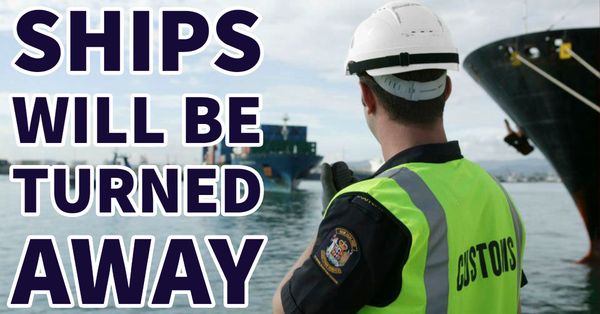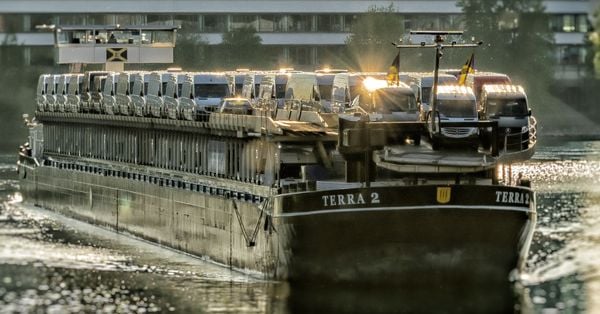
More Vehicle Import Troubles with Ineffective NZ Biosecurity Rules
3-minute read (4-minute listen)
Newscaster: The car shipping line, Scandinavia’s Wallenius Wilhelmsen, is telling the government that the biosecurity rules that are meant to keep the marmorated stink bug pest out of New Zealand are ineffective and inconsistent.
Full Audio Interview (transcription below):
It’s warning the government if the rules are not improved, the pests could spread here and harm the economy. The company’s ships have been among five turned away from New Zealand ports at huge cost, after brown marmorated stink bugs were found.
The chief commercial officer for the company, Simon White, spoke to me a little earlier this morning from London. He says, “The government must make sure the regulations work well for all in the industry and do it soon.”
Simon White: Our financial results that were presented to market in Q4 of last year, the net magnitude – the impact to us – was $3 million for the quarter and certainly, the 2018-19 season mainly played out in Q4.
In terms of Q1 this year, it’s too early to put a figure or a net figure on that right now, but certainly, each vessel that is delayed runs into the magnitude of hundreds of thousands of United States dollars.
And in the case that a vessel would be turned away to the point of having to discharge its load of cargo in a alternative port for treatment and ultimately return, then we’re talking a magnitude of millions of dollars in such a case.
Newscaster: Wow. Okay. So big bucks involved. Let’s talk about exactly what your responsibilities are . As I understand it, the shipper has to take responsibility for presenting clean cargo, if you like. That is your responsibility. Why has that not been able to be discharged to the satisfaction of MPI, the Ministry for Primary Industries in New Zealand?
Simon White: I think it’s probably important to note that there are in a way three players in that situation. First, is the receiver of the cargo or the ultimate customer of the cargo.
And it is their responsibility to make sure that the regulations are put in place by the MPI are being fully adhered to and they have to present documentation and proof of that.
The shipper, which in this sense is actually potentially the manufacturer of the goods, in this case, Europe – it can also be north America or Asia, of course – it is their responsibility.
And this goes across the board for shipment on our vessels have an obligation to present to us cargo that is free of contamination. Free of any bugs on board or being carried with the cargo.

Our responsibility as the shipping line or technically called the carrier in this context is a little bit more limited. We will, of course, make sure that all of the cargo that we are loading is in accordance with the regulations.
And in fact, we go over and above that.
And the fact that stink bugs are still being found on cargo when it ultimately arrives in New Zealand is to us a clear sign that the regulations as they stand today are not fully effective, and in that sense, that more countries should be included in that regulation.
Newscaster: Is that the problem, that the neighbouring countries aren’t being included, and there’s what? Some sort of contamination going on? What exactly is the problem with the regulations that you would like to see changed?
Simon White: Yeah, I think the most important one is that, obviously, Europe is one land mass. Not to trivialise it but the stink bugs don’t reflect or respect borders .
Source: Radio NZ
P.S. We’d love to answer any of your questions! Contact us . Do you know of other people that will find this article useful? Please share it on social media. Thank you!
